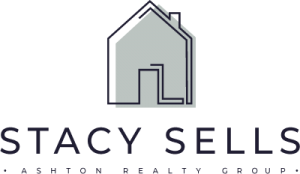If you’re currently in the market for a new home or plan to be soon, understanding the fees associated with buying it is important to purchasing power and overall success.
Although it would be effortless if all we had to worry about was the listing price, there is a lot more that goes into a home purchase when it comes to cash money. Most often, home fees vary based on factors such as the offer, the current market, and the type of home loan you plan to use in your purchase.
Before you complete the process of picking a home that you love, it’s important to remember that having a comfortable amount of money saved before home searching and purchase will help you easily handle all the fees associated with buying a home.
Whether you’re hoping to buy your first home this year or looking at bigger and better options for a new and different property, understanding the costs that can arise will set you up to win the market.
Let’s take a deeper look at the costs that come with purchasing a home.
- Down Payment
A down payment is the amount of money you put down during closing that is factored against the home’s total cost.
Most home loans require a down payment of some amount. For conventional or FHA loans, a down payment is always required. FHA loans require a down payment of at least 3.5%, while conventional loans vary based on property type, location, and specific loan terms that can be affected by your overall credit.
The typical down payment range can vary from as little as 3% to as much as 20%. Check with your lender to ensure you plan appropriately before securing a home.
Two loans do not require a down payment. They are:
- VA loans, available only to qualifying military members
- USDA loans used to purchase homes in rural areas that are precisely mapped out by the USDA
We recommend having at least 10% of the total home cost saved for a down payment. Then, if there is any extra left, you can use that for other home fees.
- Closing Costs
Closing costs are required before you secure the keys to your potential new home.
It’s essential to recognize that the term “closing costs” is a general phrase used to cover all the fees associated with getting your mortgage.
For most home buyers, closing costs range from 2% to 5% of a home loan’s principal and encompass fees such as:
- Credit check fee
- Application cost
- Attorney fees
- Pre-paid taxes
- Appraisal
- Underwriting fees
- Home inspection
- Title search
- A full year of homeowner’s insurance
- Title insurance
- Transfer tax
In rare cases, widely dependent on the market, sellers will cover some or all of the closing costs based on the terms of the accepted offer. Therefore, it is important to speak with your loan officer and realtor to determine what out-of-pocket costs you will need to pay for umbrellaed under closing costs.
- Property Taxes
As with any large purchase, tax is required. The same is true when purchasing a home. For most, property tax is included in your monthly mortgage payment but is separate from the interest and principal.
The exact cost of property taxes is based on the assessed value of your property and paid out monthly over the life of your loan. Estimates can take between two to six months in escrow depending on the type of property you’re purchasing, such as a single-family, commercial space, or investment multi-family unit.
- Homeowners Insurance
Homeowners insurance helps to financially protect a homeowner in the case of unexpected events that could significantly damage your home, such as natural disaster, theft, or fire.
Although not required by law, most mortgage lenders require this type of insurance before your loan is secured. In fact, you may be required to pay the first year in full. However, cost varies, and options for coverage are plentiful. When looking at cost, you will be presented offers based on home location, size, and your credit history.
- HOA fees
If you’ve purchased a home within a designated community, homeowners association (HOA) fees may be required of you on a monthly, quarterly, or yearly basis.
Although different per community, the details of your HOA requirements will be outlined in your purchasing agreement. This type of fee is variable and set in place by the specific homeowner’s association in your new community.
Classified as “dues,” they cover community-related services such as:
- Security
- Pool or hot tub
- A gym
- Landscaping
- General maintenance
It is also important to note that when purchasing a home in an HOA community, a transfer fee is often assessed during a change of ownership that the buyer typically covers. This can range from minimal to large based on the amount of community-based amenities, paperwork fees, and location.
Planning ahead is key to getting your new keys
As mentioned, there are many potential fees outside of the standard purchase price when buying a home, whether it’s your first or tenth.
Outside of the fees we’ve covered, there may be other less-common fees to keep in mind, such as home renovations, solar panel cost, monthly air filtration, or general maintenance to maintain the home efficiently.
If you’re searching for your next home and want help understanding more about the fees associated with purchasing a property, we’d love to help. So contact us today to begin your journey of new homeownership in Massachusetts.


